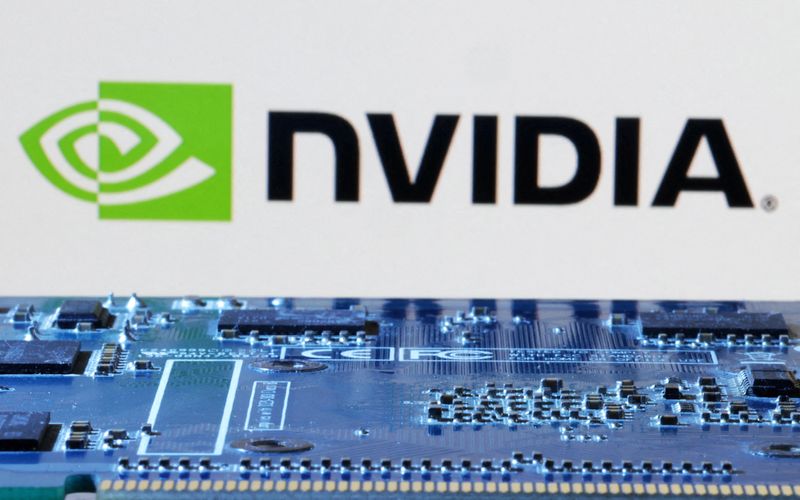By Marc Jones and Rodrigo Campos
LONDON/NEW YORK (Reuters) – The unstoppable mega-cap march, slothful central bank pivots, political palpitations galore and mergers and acquisitions are back – the first half of 2024 has been another whirlwind on global markets.
Predictions for a global rate-cutting frenzy may not have come true, but Nvidia (NASDAQ:) and the rest of the Magnificent 7 increased another $3.6 trillion in market value.
The 47-country MSCI world stock index is up as much as 11% since January. Good, yes, but nowhere near the 30% jump in team technology, or the frankly eye-popping 150% gain of chip champion Nvidia.
“Thirty percent of the S&P’s returns this year have come from Nvidia alone,” IBOSS Asset Management chief investment officer Chris Metcalfe said, noting that it is now the most expensive stock in the world’s most expensive market.
It is not just the stock markets where milestones have been set.
The Japanese yen has fallen to a 38-year low against the dollar on currency markets. Cocoa had one of its best ever runs as French bond risk exploded to its highest level since the euro crisis after French President Emmanuel Macron’s far-right push in this month’s EU elections pushed him to call early parliamentary elections on Sunday.
Government bonds were having a hard time anyway. Predictions of a wave of rate cuts have been a trickle in some parts of Europe and emerging markets, and certainly not yet in the United States.
As a result, anyone holding a basket of benchmark bonds has lost about 1.5% of their money.
“At the end of last year, markets expected seven (US) rate cuts and now they expect only one or two,” said Nadege Dufosse, head of multi-asset at Candriam. “That has been the main driver and explains the (poor) performance.”
A shaky performance by US President Joe Biden in his final TV debate against Donald Trump has significantly increased US election uncertainty in November.
July 4 also marks a general election in Britain, although there is not expected to be much market fireworks despite this almost certainly being the first change of government in 14 years.
Polar Capital fund manager Georgina Hamilton explained that this was because, unlike France and the US, the two main candidates to lead Britain are quite centrist.
“As we’ve had quite a bit of unrest in recent years, you can’t underestimate that calmer political backdrop,” she added.
GOLD SHINE
The big story in commodities is that cocoa is skyrocketing almost 85% due to shortages, which is already the second-largest annual jump of all time, although this is certainly not good news for chocoholics.
Gold reached an all-time high of just under $2,450 an ounce last month. Oil is up a respectable 12% as bitcoin broke through $70,000 and set a series of new highs after US watchdogs gave bitcoin exchange-traded funds the green light.
The value of global M&A activity increased by 5% compared to last year.
That’s mainly thanks to a series of $35 billion deals that saw credit card company Capital One acquire Discover Financial and chip designer Synopsys (NASDAQ:) buy out rival Ansys (NASDAQ:), though it could have been a lot more if BHP’s harrowing $49 billion quest for Anglo American (JO:) was successful.
DESTROYED TO IMPRESS
Off the beaten track, Ecuadorian bonds have risen 46% despite lingering debt concerns, and Argentina’s new chainsaw-wielding president, Javier Milei, has helped government bonds rise 32%.
Emerging market veteran Kevin Daly from Aberdeen said there is a ‘distressed to impress’ move, with bonds from crashed countries such as Zambia, Ghana and Sri Lanka all up between 16% and 23% as their year-long debt restructuring approaches come. an end.

However, as always, there have still been plenty of downs in emerging markets.
Chinese real estate shares have fallen for the ninth quarter in a row. Devaluations have sent the currencies of Nigeria and Egypt down 42% and 36% respectively, while the Mexican peso has fallen almost 8% this month after a resounding presidential election result fueled concerns about its future.


